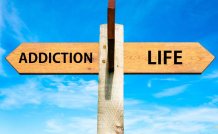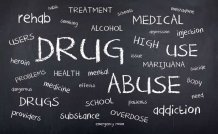Online Class: Drug and Alcohol Abuse 101

no certificate
with CEU Certificate*
-
11Lessons
-
20Exams &
Assignments -
3,537Students
have taken this course -
7Hours
average time -
0.7CEUs
Course Description
In this historic period in the United States, each one of us encounters some aspect of drug and alcohol abuse, whether it is a family member, a friend or neighbor, a student, a person on the street -- or yourself. We are all affected in some way, whether in terms of personal quality of life, or potential safety issues on the highway. You may view substance abuse as simply a social concern, or perhaps you are already experiencing a full-blown problem and seek answers for yourself or others. Regardless, it is important to educate ourselves about the causes, consequences, and solutions of this persistent condition in our society.
Divided into two parts, this course has been developed for educators, parents, counselors, teens, or anyone with the desire to explore these issues, and who may be looking for methods of recognizing, coping, and dealing with drug and alcohol abuse. Part I delves into drug and alcohol history, facts, abuse, and addiction. Part II presents some nuts and bolts of prevention, intervention, and treatment options, along with a plethora of resources.
You may know a troubled adolescent or teen who is experimenting, or someone whose addiction is clearly affecting his or her life. You may be one of these people. The aim of this course is to provide general guidelines regarding what we currently know about substance abuse, as well as helpful resources and possible solutions.
NOTE: Although it is universally acknowledged that tobacco and coffee are addictive substances, for the purposes of this course, they will not be addressed.
Today in the U.S., the most commonly abused drugs are alcohol, marijuana, cocaine, ecstasy, heroin, methamphetamines, LSD, and various prescription drugs, such as pain-killers and sleeping aids. Problems with alcoholism and addiction are prevalent among teenagers; however, many other sectors of our culture are affected, as well. Alcohol abuse, in particular, spans every age group and social class.
The most vulnerable and active group of drug abusers are, unfortunately, adolescents and teenagers. A tremendous amount of material has been written, recorded, filmed, and lectured about "peer pressure," a heavily used term. Perhaps "pressure" is not the best word, in this case. Teens and adolescents, who are developing an adult sense of self, may simply feel compelled to fit into their peer group as they search for some new meaning to their changing lives. Facing a time when they will no longer be under parental control, the adolescents' urge to begin asserting themselves is strong, and the desire for acceptance and belonging to a group that is not family feels like a matter of survival to some. In cases where the family unit is not strong, and where there is trouble, neglect, misunderstanding, or a host of other common problems in the immediate family, the urge to belong to a new family becomes even more powerful.
Adolescents and teens are the most susceptible to drug and alcohol use. In this period of life, all people are compelled to explore their options about who they want to be, how they want to be seen by others, and how they might fit in with their peers. When the family unit is not strong, (and sometimes even when it is) young people who are not feeling particularly stable at this age anyway, are likely to experiment with whatever their friends are using. Although statistics show that there are many bad outcomes to this behavior, teens often simply want immediate gratification, and cannot imagine the effects of drug use on their future.
Drugs, across the spectrum, are readily available to young people, who are, perhaps, the most vulnerable to addiction. Of course, people of all ages are subject to drug abuse. Prescription drugs have become as commonly abused as illicit drugs, since they tend to create a euphoric state. There are endless accounts of those who go from doctor to doctor for new prescriptions of the popular pain reliever, Oxycontin, often not only for personal use, but for the purpose of selling to others.
The elderly are particularly vulnerable, since they are often prescribed a number of different drugs for various conditions, including pain. If not monitored, elderly folks can become confused, or simply develop a preference for the drugs that make them feel the best.
- Completely Online
- Self-Paced
- 6 Months to Complete
- 24/7 Availability
- Start Anytime
- PC & Mac Compatible
- Android & iOS Friendly
- Accredited CEUs

Course Lessons
Lesson 1: Drug and Alcohol Abuse -- Awareness, Counseling, and Prevention
 Lesson 1 Video
Lesson 1 Video Lesson discussions: Drug and Alcohol Abuse Course; Reasons for Taking this Course
Lesson discussions: Drug and Alcohol Abuse Course; Reasons for Taking this Course Complete: Lesson 1 Assignment
Complete: Lesson 1 Assignment Complete Assignment: An Introduction
Complete Assignment: An Introduction Assessment: Lesson 1: Introduction - Drug and Alcohol Abuse: Awareness, Counseling and Prevention
Assessment: Lesson 1: Introduction - Drug and Alcohol Abuse: Awareness, Counseling and Prevention
Lesson 2: Availability of Drugs
 Lesson 2 Video
Lesson 2 Video Complete: Lesson 2 Assignment
Complete: Lesson 2 Assignment Assessment: Lesson 2: Availability of Drugs
Assessment: Lesson 2: Availability of Drugs
Lesson 3: Why Do Humans Abuse Substances?
 Lesson 3 Video
Lesson 3 Video Assessment: Lesson 3: Why do Humans Abuse Substances?
Assessment: Lesson 3: Why do Humans Abuse Substances?
Lesson 4: Dependence and Addiction
 Lesson 4 Video
Lesson 4 Video Complete: Lesson 4 Assignment
Complete: Lesson 4 Assignment Assessment: Lesson 4: Dependence and Addiction
Assessment: Lesson 4: Dependence and Addiction
Lesson 5: Effects of Use and Dependency -- Potential Social Consequences of Substance Abuse
 Lesson 5 Video
Lesson 5 Video Assessment: Lesson 5: Effects of Use and Dependancy - Potential Social Consequences of Substance Abuse
Assessment: Lesson 5: Effects of Use and Dependancy - Potential Social Consequences of Substance Abuse
Lesson 6: Prevention in the Home
 Lesson 6 Video
Lesson 6 Video Complete: Lesson 6 Assignment
Complete: Lesson 6 Assignment Assessment: Lesson 6: Prevention in the Home
Assessment: Lesson 6: Prevention in the Home
Lesson 7: Schools
 Lesson 7 Video
Lesson 7 Video Lesson discussions: School Prevention
Lesson discussions: School Prevention Assessment: Lesson 7: Schools
Assessment: Lesson 7: Schools
Lesson 8: Workplace Prevention
 Lesson 8 Video
Lesson 8 Video Complete: Lesson 8 Assignment
Complete: Lesson 8 Assignment Assessment: Lesson 8: Workplace Prevention
Assessment: Lesson 8: Workplace Prevention
Lesson 9: Assessment and Intervention
 Lesson 9 Video
Lesson 9 Video Lesson discussions: Intervention
Lesson discussions: Intervention Assessment: Lesson 9: Assessment and Intervention
Assessment: Lesson 9: Assessment and Intervention
Lesson 10: Treatment
 Lesson 10 Video
Lesson 10 Video Complete: Lesson 10 Assignment
Complete: Lesson 10 Assignment Assessment: Lesson 10: Treatment
Assessment: Lesson 10: Treatment
Lesson 11: Following Up
 Lesson 11 Video
Lesson 11 Video Lesson discussions: Let us know what you think of this course; Program Evaluation Follow-up Survey (End of Course); Course Comments
Lesson discussions: Let us know what you think of this course; Program Evaluation Follow-up Survey (End of Course); Course Comments Complete: Lesson 11 Assignment
Complete: Lesson 11 Assignment Assessment: Lesson 11: Following Up
Assessment: Lesson 11: Following Up Assessment: The Final Exam
Assessment: The Final Exam
Learning Outcomes
- Describe drug and alcohol abuse -- awareness, counseling, and prevention.
- Summarize availability of drugs.
- Describe why humans abuse substances.
- Summarize dependence and addiction.
- Summarize effects of use and dependency -- potential social consequences of substance abuse.
- Describe prevention in the home.
- Summarize schools and drug use.
- Summarize workplace prevention techniques and policies of drug use.
- Determine assessment and intervention of drug abusers.
- Determine drug abuse treatment.
- Summarize following up techniques.
- Demonstrate mastery of lesson content at levels of 70% or higher.
Additional Course Information

- Document Your Lifelong Learning Achievements
- Earn an Official Certificate Documenting Course Hours and CEUs
- Verify Your Certificate with a Unique Serial Number Online
- View and Share Your Certificate Online or Download/Print as PDF
- Display Your Certificate on Your Resume and Promote Your Achievements Using Social Media

Choose Your Subscription Plan
No Certificate / No CEUs
This course only
| Includes certificate | X |
| Includes CEUs | X |
| Self-paced |

|
| Instructor support |

|
| Time to complete | 6 months |
| No. of courses | 1 course |
Certificate & CEUs
This course only
| Includes certificate |

|
| Includes CEUs |

|
| Self-paced |

|
| Instructor support |

|
| Time to complete | 6 months |
| No. of courses | 1 course |
Certificates & CEUs
Includes all 600+ courses
| Includes certificate |

|
| Includes CEUs |

|
| Self-paced |

|
| Instructor support |

|
| Time to complete | 12 Months |
| No. of courses | 600+ |
Certificates & CEUs
Includes all 600+ courses
| Includes certificate |

|
| Includes CEUs |

|
| Self-paced |

|
| Instructor support |

|
| Time to complete | 24 Months |
| No. of courses | 600+ |
Student Testimonials
- "This course was great! I want to go to work in this field and found it not only accurate but helpful." -- Anita G.
- "I found this coarse to be very informative and enables me with the knowledge and skills to address any related problems within my business." -- Bulent U.
- "I think the course was super helpful, and has taught me a lot about drug rehabs, detoxification, and a lot about workplace safety." -- Alden B.
- "I learned a lot of new things as well as things I remembered during this course. The information was helpful for me to get back in the field of addiction. I am glad I took this course." -- Bernadette B.
- "I think this course is very helpful and I like that it teaches me how to support others in need of help." -- Christina M.
- "Thank you so much! I am now well-equipped to understand the clients that have substance misuse disorders." -- Monica H.
- "I thought this course was a very helpful and great way to guide addicts and people looking to work in this field." -- Megan M.
- "I was impressed by Instructor Dr. Deirdre Mithaug's outstanding organization of the lessons, assignments and examinations!" -- Alvin O.
- "The course was very well put together, and to the instructor, job well done." -- Dexter K.
- "This course was helpful and interesting." -- Donna B.
Related Courses
-
 21 hours
2.1 CEUs
Ultimate Parenting Course Bundle
$135.00
21 hours
2.1 CEUs
Ultimate Parenting Course Bundle
$135.00
-
 5 hours
0.5 CEUs
Critical Thinking
$95.00
5 hours
0.5 CEUs
Critical Thinking
$95.00
-
 5 hours
0.5 CEUs
Anger Management 101
$95.00
5 hours
0.5 CEUs
Anger Management 101
$95.00
-
 7 hours
0.7 CEUs
Workplace Sexual Harassment in the #MeToo Era
$95.00
7 hours
0.7 CEUs
Workplace Sexual Harassment in the #MeToo Era
$95.00
-
 7 hours
0.7 CEUs
Healthy Relationships
$95.00
7 hours
0.7 CEUs
Healthy Relationships
$95.00
-
 4 hours
0.4 CEUs
Stress Management
$95.00
4 hours
0.4 CEUs
Stress Management
$95.00
-
 5 hours
0.5 CEUs
Depression Management
$95.00
5 hours
0.5 CEUs
Depression Management
$95.00
-
 3 hours
0.3 CEUs
Single Parenting 101
$95.00
3 hours
0.3 CEUs
Single Parenting 101
$95.00
-
 5 hours
0.5 CEUs
Emotional Intelligence
$95.00
5 hours
0.5 CEUs
Emotional Intelligence
$95.00
-
 5 hours
0.5 CEUs
Basic Parenting 101
$95.00
5 hours
0.5 CEUs
Basic Parenting 101
$95.00
-
 6 hours
0.6 CEUs
Confidence Building
$95.00
6 hours
0.6 CEUs
Confidence Building
$95.00
-
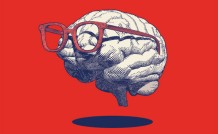 5 hours
0.5 CEUs
Creative Thinking
$95.00
5 hours
0.5 CEUs
Creative Thinking
$95.00
-
 8 hours
0.8 CEUs
Assertiveness Training
$95.00
8 hours
0.8 CEUs
Assertiveness Training
$95.00
-
 12 hours
1.2 CEUs
Serial Killers 101
$95.00
12 hours
1.2 CEUs
Serial Killers 101
$95.00
-
 3 hours
0.3 CEUs
Babysitting 101
$95.00
3 hours
0.3 CEUs
Babysitting 101
$95.00
-
 7 hours
0.7 CEUs
Conflict Resolution 101
$95.00
7 hours
0.7 CEUs
Conflict Resolution 101
$95.00
-
 12 hours
1.2 CEUs
Child Abuse Recognition, Investigation, and Protection
$110.00
12 hours
1.2 CEUs
Child Abuse Recognition, Investigation, and Protection
$110.00
-
 5 hours
0.5 CEUs
Child Safety for Parents
$95.00
5 hours
0.5 CEUs
Child Safety for Parents
$95.00
-
 7 hours
0.7 CEUs
Innovative Thinking
$95.00
7 hours
0.7 CEUs
Innovative Thinking
$95.00
-
 5 hours
0.5 CEUs
Positive Parenting Techniques
$95.00
5 hours
0.5 CEUs
Positive Parenting Techniques
$95.00
-
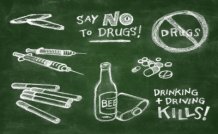 7 hours
0.7 CEUs
Drug and Alcohol Abuse 101
$95.00
7 hours
0.7 CEUs
Drug and Alcohol Abuse 101
$95.00
-
 8 hours
0.8 CEUs
Domestic Violence 101
$110.00
8 hours
0.8 CEUs
Domestic Violence 101
$110.00
-
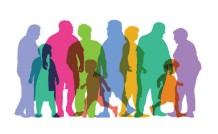 3 hours
0.3 CEUs
Childhood Obesity
$95.00
3 hours
0.3 CEUs
Childhood Obesity
$95.00
-
 5 hours
0.5 CEUs
Home Safety
$95.00
5 hours
0.5 CEUs
Home Safety
$95.00
-
 7 hours
0.7 CEUs
Attention Deficit Disorders: ADD and ADHD
$95.00
7 hours
0.7 CEUs
Attention Deficit Disorders: ADD and ADHD
$95.00
-
 9 hours
0.9 CEUs
Autism Spectrum Disorders for Teachers
$95.00
9 hours
0.9 CEUs
Autism Spectrum Disorders for Teachers
$95.00


